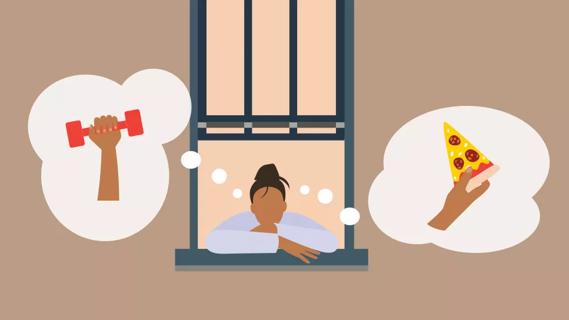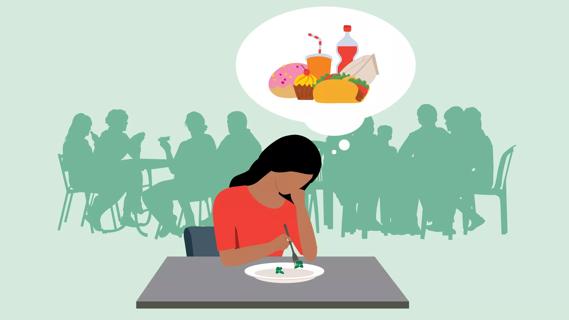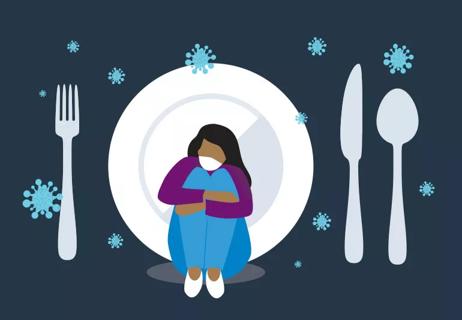Advertisement
It may be mistaken for digestive problems

It’s normal for a baby to spit up as their digestive system develops and they get the hang of feeding.
Advertisement
Cleveland Clinic is a non-profit academic medical center. Advertising on our site helps support our mission. We do not endorse non-Cleveland Clinic products or services. Policy
But if a child continues to regurgitate beyond their first year, there might be something else going on.
It’s most likely something bugging their digestion, like gastroesophageal reflux (yes, kids can have it too), gastroparesis or a swallowing problem. If there’s no underlying medical condition at play, though, a pediatrician might start to consider rumination syndrome.
Rumination is a rare eating disorder characterized by repeated regurgitation of undigested or partially digested food after eating, without any nausea or retching.
Experts aren’t sure exactly why this happens to some children and people with developmental disabilities, but they do know that it’s closely tied to anxiety, says child and adolescent psychiatrist Tatiana Falcone, MD.
“Anxiety can come in so many different ways — it can come as a headache, a stomach ache or as rumination disorder,” she explains.
Here’s what we do know about this condition.
Unlike with other eating disorders, a child who ruminates eats food normally. Only, after they eat — usually within 30 minutes to an hour — some of the food they ate flows backward from their esophagus and stomach up into their mouth.
Parents may notice some children rechewing and swallowing the food. Others may spit it out.
They aren’t doing this consciously; rumination is a learned reflex response, Dr. Falcone says. And because it’s a behavioral issue, it’s treated much differently than a digestive problem, so it requires careful diagnosis.
Advertisement
“First you have to think about gastrointestinal issues,” Dr. Falcone says. “Before we make a diagnosis, we want to make sure we rule out any physical conditions that could be causing this.”
Many children with rumination disorder benefit from breathing training that teaches their diaphragm to relax when they’re eating, Dr. Falcone says.
They may also benefit from other steps to reduce anxiety in their lives overall, like adhering to regular sleeping and eating schedules, and having relaxed mealtimes that aren’t rushed.
“Anxiety can be exacerbated by stress in the home, neglect and troubled parent-child relationship problems,” Dr. Falcone says.
The good news, she notes, is that most kids are eventually able to overcome their rumination symptoms. However, it’s important for parents to know that they may be at risk for developing other anxiety disorders later in life.
“Sometimes, the rumination disorder gets better and they go years and years with no symptoms, and later we might see sleeping problems or headaches or stomach aches,” Dr. Falcone explains. “So it’s important to teach some of these behavioral and relaxation techniques to help kids control the anxiety, because those might also be useful later.”
If your child is regurgitating food consistently, start by seeing a primary care physician. They can start the process of figuring out what’s going on and refer you to a digestive specialist or psychologist if necessary.
Learn more about our editorial process.
Advertisement

Learning about your relationship with food can help improve your eating behaviors and patterns

Having overweight and disordered eating is a high-risk combination that often gets dismissed or overlooked

While social media content doesn’t create eating disorders, it can easily exacerbate them

Too-strict ‘food rules’ can have negative consequences

Nausea can be caused by a lot of conditions

Why the last 18 months have been so stressful

Don’t let emotions trigger bad food habits

A comprehensive guide to symptoms, tips for intervention & treatment

Focus on your body’s metabolic set point by eating healthy foods, making exercise a part of your routine and reducing stress

PFAS chemicals may make life easier — but they aren’t always so easy on the human body

While there’s little risk in trying this hair care treatment, there isn’t much science to back up the claims